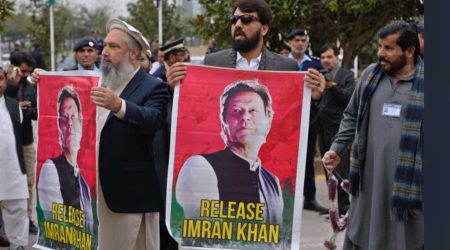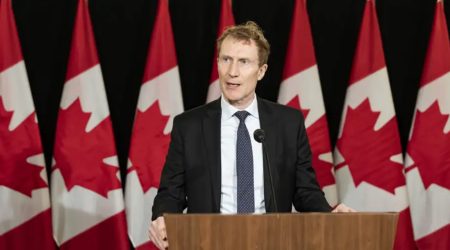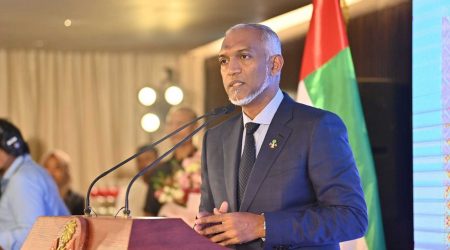By KS Tomar
Mark Twain said, ‘history repeats itself but, at times in rhymes’, holds true in a stereotyped manner to the outcome of polls in Pakistan.
The results of the 2024 general elections in Pakistan had been a novella or saga scripted by the super-powerful army to ensure the success of Nawaz Sharif’s party, PML-N and very identical to the previous elections held in 2018 to enthrone Imran Khan in the post of prime minister of Pakistan.
It is said that generally a country has an army but for Pakistan it is an army which has a country. Owing to this predominant factor of supremacy of the army, the “selection” of Shehbaz as Prime Minister will tolerated by the people as the country has a history of being ruled by the army – indirectly by proxy for decades and directly for 33 years from 1958-1971, 1977-1988 and 1999 to 2008.
The predominant polling by people in favor of Imran Khan’s nominees who fought the election as independents and allegations of rigging the polls have proved that while people of Pakistan know what is best for them, the army is denying them a chance to rule themselves through democratic process.
Now, the cat is out of the bag and the outcome of the polls in Pakistan is in consonance with the expectations and estimation of the entire world besides the people of this beleaguered country.
Experts say that Pakistan is poised for another spell of pain, mess and chaos as Imran’s supporters have won in big numbers and are bound to create problems for the Shehbaz government but the army shall continue to project itself as “Savior” of poor people of Pakistan to rule by proxy.
World Image of Pakistan
What remains the façade of democracy in Pakistan will not serve its interest in both short and long term. Pakistan is already facing an economic crisis as the International Monetary Fund (IMF) is reviewing its bailout package.
The IMF had saved Pakistan from economic collapse as Pakistan’s reserves stood at $7.8 billion in November 2023.
For the United States and India, the frail ‘democratic’ government of Pakistan walking on the clutches of lackluster army leadership has no intrinsic value in terms of diplomacy and trade. Though Nawaz Sharif is considered a mature politician in India but fact is that ‘Kargil’ happened right under his nose when he was Prime Minister and he could not do anything about it.
The US has a history of having direct ties with army generals hence it may find it easy to deal with the new government. India can expect Nawaz to influence Shebhaz to take initiative to start dialogue with India which has already created its space in the world arena and economic ties can help the beleaguered people of this poor country.
Who’s the king: Shehbaz or Asim Munir?
The track record shows that the US administration always had a close relationship with the Pakistan army, which will be true to the current set-up also. Pak Army will fully support Shehbaz to improve ties with the US, which in turn may help Pakistan to get more financial assistance from the IMF.
Army Chief General Asim Munir recently visited the US to lobby for getting a financial bailout package. Nawaz Sharif will be the guiding force to cement the ties with the army and ensure the success of the coalition government.
Challenges ahead for new government
Foreign policy experts feel that it will be a bed of the throne for Sharif who will face hordes of challenges to save his country. His primary task will pertain to handling the current economic crisis which has a high probability to go the Sri Lankan way.
Importantly, Pakistan will also bear the poison ivy it has sown for years for the others in the subcontinent and the world. It will be an uphill task to control the acts of terror emanating from Afghanistan, which supports outlawed Tehreek-i-Taliban (TTP). Once a protégé of Pak army is now proving to be a double edged sword.
Common people will naturally expect from the new government to check the growing terror attacks, which have reportedly resulted in more than 1500 casualties in 2023.
Army rule by proxy or Nawaz’s rule by proxy
In a surprise move, Nawaz Sharif has nominated his younger brother Shehbaz Sharif for the post of PM, which will enable him to rule by “Proxy” and secure the post of chief minister of Punjab for his daughter Maryam Nawaz.
Experts say that Nawaz has tried to kill two birds with one stone by keeping the scope for the Pakistan Peoples Party’s (PPP) to join the government as Bilawal Bhutto chairman of the party has declared to support the PML-N government from outside. Bilawal has bargained with PML-N to nominate his father, Asif Ali Zardari for the post of the president.
The coalition government may comprise various parties including PML-N, PPP, MQM, PML-Q, BAP, etc. and have a strength of 152 as against the required tally of 133 in the house of 265 which may go up to 169 after the addition of nominated members.
Strained relations with Taliban
It may be recalled that Pakistan had been successful in isolating India during the Doha dialogue which had inked a Peace deal with the US in 2020, prior to withdrawal of the troops from Afghanistan.
Recently, Pakistan has forcibly expelled 3,75,000 Afghans and deported 20,000 of them which had infuriated the Taliban regime which has blasted its neighbor and ties are touching new low. Many of these include people who helped the US forces on ground.
Why did Nawaz Sharif opt out?
Common perception is that the current army chief Asim Munir has scripted the entire episode to enthrone Shehbaz Sharif.
Analysts are convinced that owing to compelling circumstances, Nawaz played his cards well and hence the onus fell on his brother Shehbaz, which will also ensure the continuity of “family rule” in Pakistan. Another addition will be Maryam Nawaz, who is poised to become chief minister of the most important province of Punjab.
After Imran’s tirade against the army, Nawaz was brought to Pakistan last year from self-exile in London. Nawaz’s brother Shebhaz headed the government in Pakistan which ensured adoption of a bill in parliament on June 25 last year, which limited the lifetime disqualification of lawmakers to 5 years. It was meant to pave the way for the return of his elder brother to resume his political activities in Pakistan.
The “mass scale rigging” in elections was to help Nawaz Sharif to become PM but the game plan went haywire as independents supported by Imran Khan won the majority of the seats while Nawaz’s PML-N could not get even a simple majority.
In all probability, Nawaz would have found it difficult in parliament as Imran’s loyalists were ready with a lot of ammunition to put him on the mat over corruption charges, whereas Shebhaz is better placed so far.
Experts opine that the new coalition government is bound to be weak and fragile hence delivery expectations on domestic and international fronts must be based on logical conclusion and limitations of new dispensation in Pakistan.
———————————–

KS Tomar is a senior political analyst based in Shimla, India.
Disclaimer: The views expressed are not necessarily those of The South Asian Times











